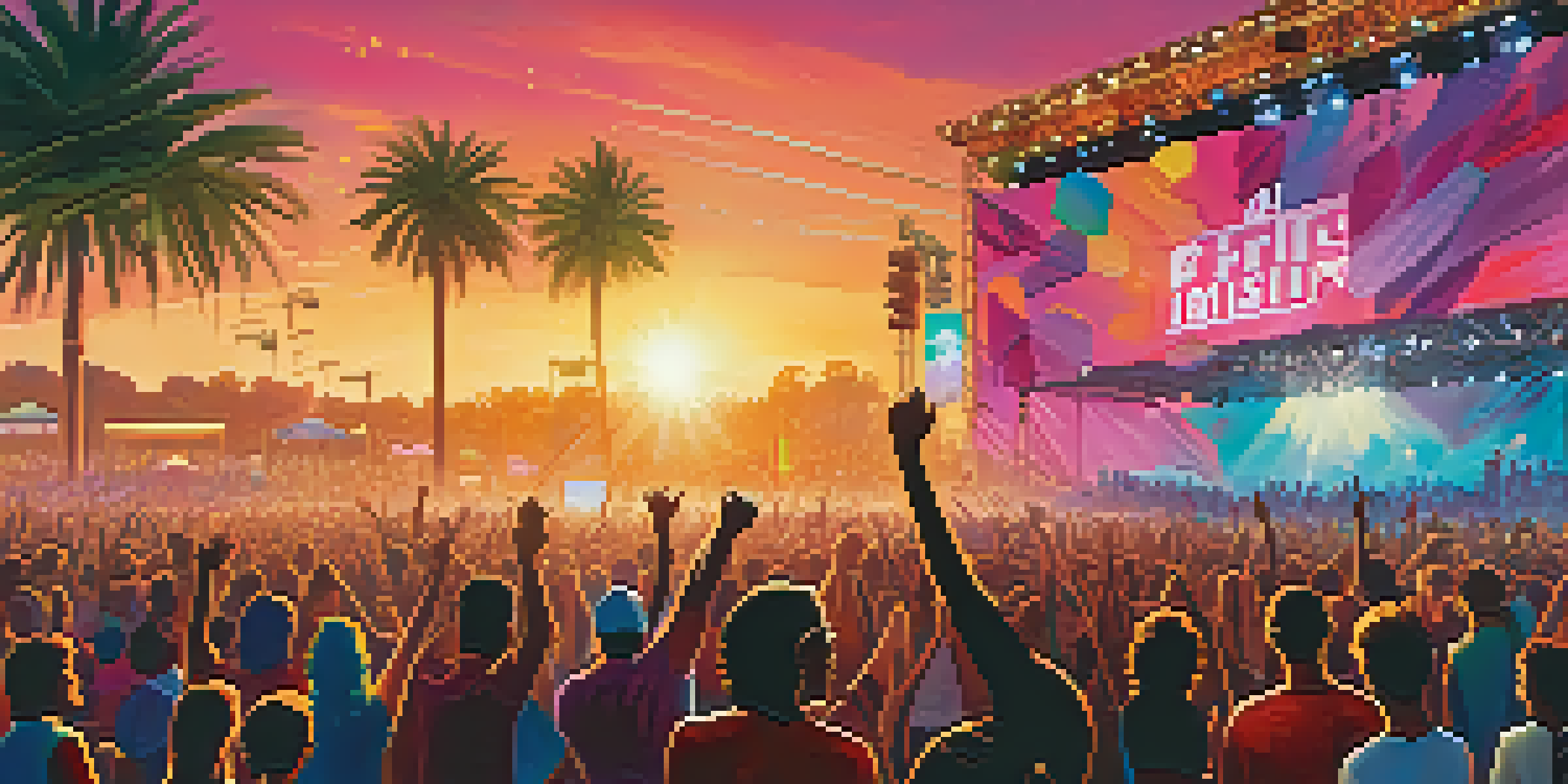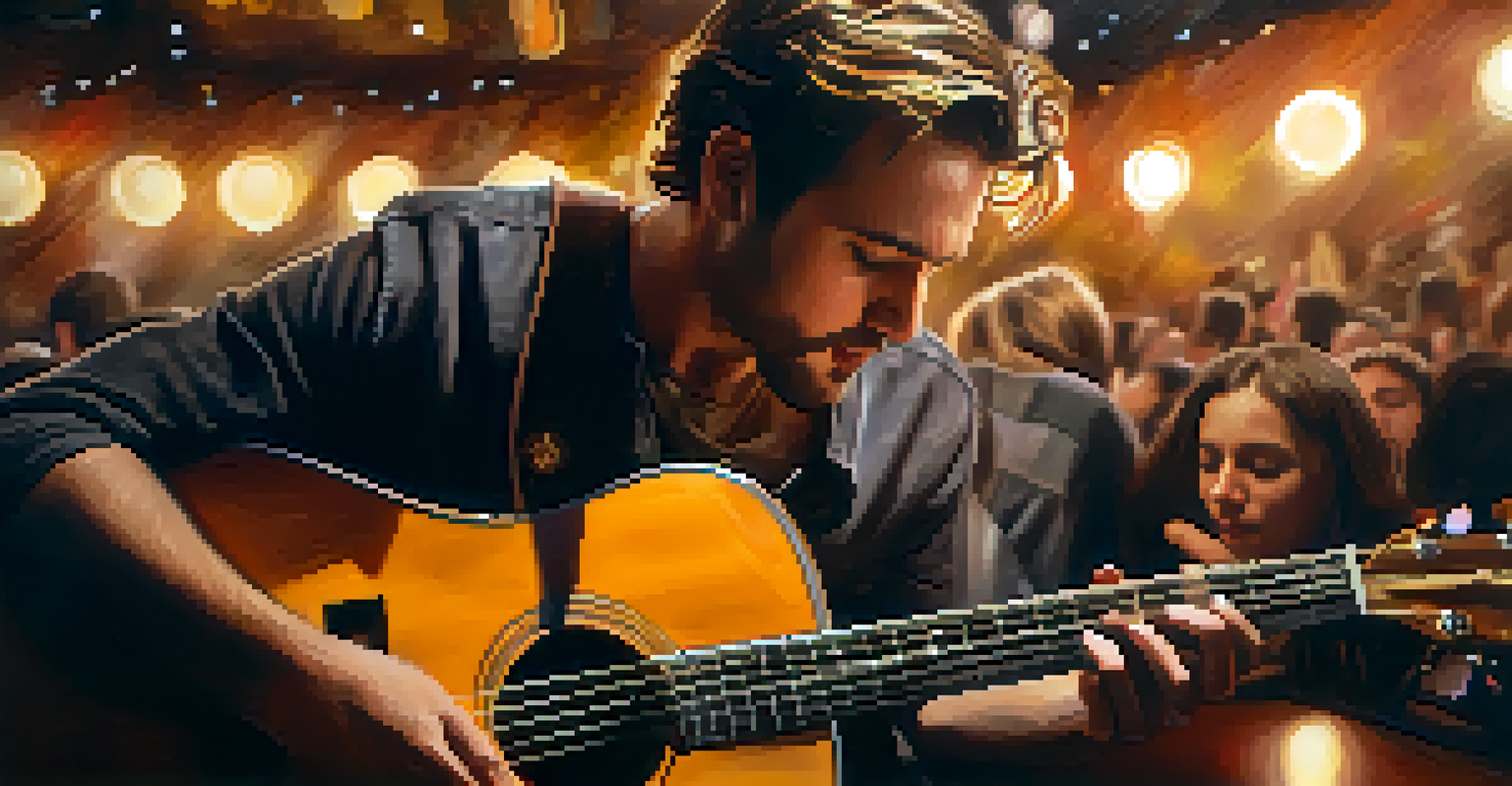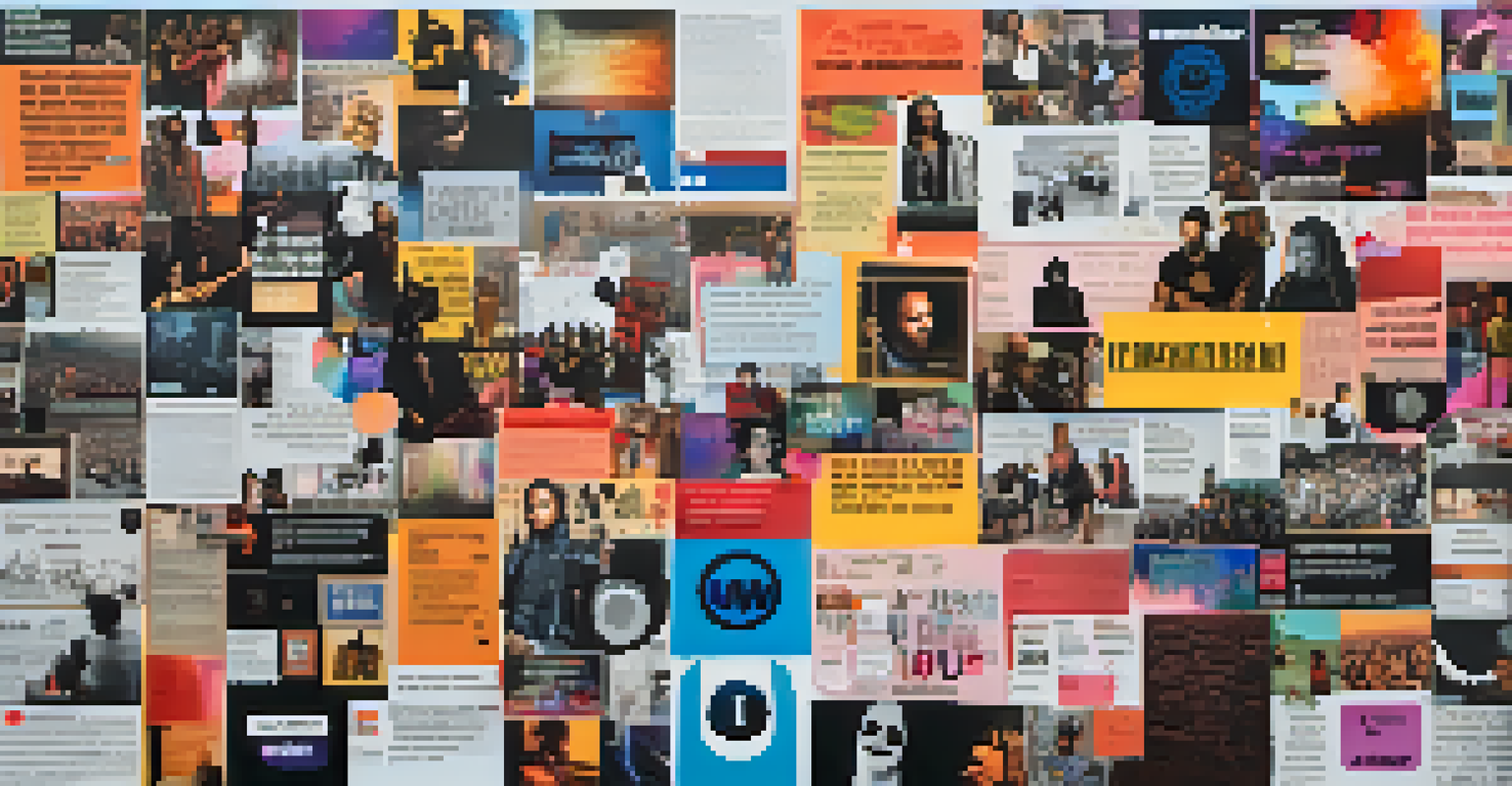Music as a Form of Activism and Personal Expression

The Historical Roots of Music as Activism
Throughout history, music has played a vital role in social movements. From the civil rights anthems of the 1960s to protest songs against war, artists have often used their platforms to advocate for change. The melodies and lyrics resonate deeply, creating a sense of unity among listeners who share common struggles.
Music is the universal language of mankind.
For instance, Bob Dylan’s 'Blowin' in the Wind' became an anthem for peace and civil rights, illustrating how powerful music can be in sparking conversations. This historical context highlights not just the emotional impact of music, but also its potential to mobilize communities. By looking back, we can appreciate how music has shaped societal shifts over time.
As we delve into contemporary issues, it’s clear that this tradition continues. Today's artists are just as committed to using their voices to challenge injustices, proving that music is a timeless form of activism.
Music as Personal Expression: A Universal Language
Music transcends barriers, allowing individuals to express their thoughts and emotions. Whether it's through composing a heartfelt ballad or crafting an upbeat anthem, artists channel their experiences into sound. This personal expression resonates with listeners, often reflecting their own feelings and experiences.

Take, for example, the genre of hip-hop, which has roots in marginalized communities. It serves not only as a form of storytelling but also a way to voice frustrations and aspirations. The authenticity found in these lyrics creates a powerful connection between the artist and the audience, fostering understanding and empathy.
Music Drives Social Change
Throughout history, music has been a powerful tool for activism, uniting communities and advocating for social justice.
Ultimately, music becomes a mirror of society, enabling personal stories to be shared widely. This shared experience can lead to healing and growth, both for the artist and their listeners.
The Role of Lyrics in Activism
Lyrics are often the heartbeat of a song, especially in activist music. They convey messages that can challenge norms, inspire action, or raise awareness about critical issues. By weaving powerful narratives into their songs, artists can create a lasting impact on listeners, prompting them to reflect and engage.
The power of music makes all the difference in the world.
For instance, songs like Kendrick Lamar’s 'Alright' have become rallying cries for movements like Black Lives Matter, showcasing the ability of lyrics to encapsulate a community's struggles and hopes. The repetition of impactful phrases can resonate deeply, making them memorable and motivating.
Moreover, the storytelling aspect of lyrics allows for diverse perspectives to be shared. This not only enriches the conversation around various issues but also empowers listeners to confront and discuss topics they may not have previously considered.
Music Festivals as Platforms for Activism
Music festivals have evolved into vibrant platforms for activism, where art meets social justice. Events like Coachella and Glastonbury often feature artists who advocate for various causes, creating an environment where awareness can flourish. These gatherings not only celebrate music but also encourage discussions around pressing social issues.
For example, the Global Citizen Festival brings together artists and activists to promote change and inspire action against poverty. Such events highlight the synergy between entertainment and activism, proving that music can mobilize large audiences toward common goals.
Lyrics Inspire and Mobilize
The impactful lyrics in activist music resonate with listeners, prompting reflection and encouraging engagement with critical issues.
By utilizing the festive atmosphere, artists can engage audiences in a way that feels accessible and inspiring. This unique blend of celebration and advocacy illustrates how music can be a catalyst for meaningful change.
The Influence of Social Media on Music Activism
In the digital age, social media has revolutionized the way music and activism intersect. Platforms like Instagram and Twitter allow artists to share their messages instantly, reaching global audiences in real-time. This accessibility empowers musicians to rally support for causes they care about, making activism a part of their online presence.
For instance, artists like Taylor Swift have used their platforms to engage fans in political discussions, encouraging them to participate in elections. By leveraging their influence, musicians can inspire action and create a sense of urgency around critical issues.
Additionally, social media enables grassroots movements to gain traction quickly. Hashtags and viral challenges can mobilize communities, demonstrating the power of music to unify and inspire action across diverse groups.
The Healing Power of Music in Activism
Beyond advocacy, music serves as a powerful tool for healing within activist movements. The act of creating or listening to music can provide solace and strength during difficult times. It becomes a form of emotional release, allowing individuals to cope with the challenges they face.
Consider the role of music in post-disaster recovery efforts; communities often come together to create art and music as a way to process trauma. This communal experience fosters resilience and solidarity, reminding individuals that they are not alone in their struggles.
Festivals Blend Music and Activism
Music festivals serve as vibrant platforms for activism, where artists and audiences come together to promote social causes and inspire action.
Moreover, the healing power of music can extend to social movements, helping individuals find hope amid adversity. By focusing on themes of love, unity, and perseverance, artists can uplift spirits and inspire a collective vision for a better future.
Future Directions: The Evolution of Music and Activism
As we look to the future, the relationship between music and activism is likely to evolve. With advancements in technology and changes in social dynamics, we can expect new genres and forms of expression to emerge. Artists will continue to find innovative ways to engage audiences and advocate for change.
Moreover, the increasing globalization of music means that diverse voices will gain prominence. This will enrich the activist landscape, as artists from various backgrounds share their unique perspectives and challenges. The fusion of genres can lead to exciting collaborations that amplify messages of unity and justice.

Ultimately, the future of music as a form of activism and personal expression holds great promise. As long as there are stories to tell and injustices to address, music will remain a powerful catalyst for change.